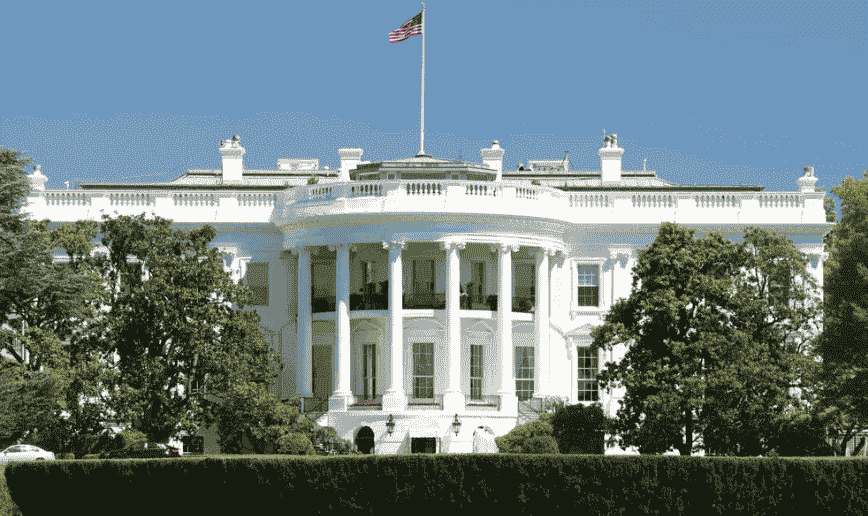
The White House has made it clear that it expects members of Congress to exercise increased vigilance on the development of future cryptocurrency legislation.
Officials have referred to the growing integration of digital currency with the larger financial system as a terrible blunder. Friday, White House officials Brian Deese, Arati Prabhakar, Cecilia Rouse, and Jake Sullivan issued a letter outlining a plan to address the dangers associated with cryptocurrencies.
Cryptocurrency Companies
In light of the widespread implosion and collapse of the cryptocurrency market in 2022, they pledged on behalf of the Biden administration to continue ensuring that cryptocurrencies do not threaten financial stability, safeguard investors, and hold bad actors accountable.
According to the letter, Congress might potentially make our jobs more difficult and increase investor and financial system risks. Legislation should not authorize conventional organizations, such as pension funds, to enter bitcoin markets headfirst.
In the past year, the minimal exposure of traditional financial institutions to cryptocurrencies has kept cryptocurrency turbulence from spreading to the larger financial system. It would be a big error to implement legislation that reverses course and strengthens the relationship between cryptocurrencies and the larger financial system.
The four authorities noted that the capacity of cryptocurrency companies to make payments faster, cheaper, and safer presents evident concerns, and that certain cryptocurrency entities disregard existing financial regulations and fundamental risk controls.
The letter continues by stating that cryptocurrency platforms and promoters frequently mislead users, have conflicts of interest, fail to provide proper disclosures or perpetrate blatant fraud. As a result of the industry-wide lack of cybersecurity, the Democratic People’s Republic of Korea was able to steal over a billion dollars to fuel its aggressive missile program.
The case involving 30-year-old FTX founder Sam Bankman-Fried and the discovery of a massive Ponzi scam is arguably the most noteworthy and severe example of virtual currency negatively impacting large numbers of investors.
The Securities and Exchange Commission accused him of investor fraud on December 13 after his company began operations in 2019 and raised more than $1.8 billion from equity investors and roughly $1.1 billion from around 90 U.S.-based investors.
Read more: Tesla: $3.6 Billion Nevada expansion creating clean energy, US security, and 3,000 jobs
FTX Founder Sam Bankman-Fried

According to some estimates, almost $8 billion in consumer funds were lost. Gary Gensler, the chairman of the SEC, stated in December that Bankman-Fried constructed a house of cards on a foundation of deceit.
Following Bankman-arrest, Fried’s Republican Representative and Majority Whip Tom Emmer, who is also co-chair of the Congressional Blockchain Caucus, stated that centralized finance must be brought under the regulatory umbrella.
In March 2022, the congressman from Minnesota addressed Gensler a letter inquiring about the frequency and method of its voluntary document requests to private, non-SEC-regulated crypto and blockchain enterprises.
He said that crypto companies must not be burdened by extra-jurisdictional and cumbersome reporting requirements. The SEC must guarantee that its requests for information from private crypto and blockchain enterprises do not hinder innovation by being overly burdensome or unnecessary.
In the same month, Texas Senator Ted Cruz presented companion legislation to an earlier Emmer bill that intended to prohibit the Federal Reserve from directly distributing central bank digital currency (CBDC) to individuals.
According to Coin Telegraph, Cruz introduced a concurrent resolution on January 25 to incentivize the usage of cryptocurrencies by members of Congress by restricting their use of vending machines and food service stations.
In June 2021, Florida Democratic Representative Darren Soto successfully sponsored two bills in the House directing the Department of Commerce to conduct a study on the state of blockchain technology and commerce, including its use to reduce fraud and increase security, in consultation with the Federal Trade Commission.
Soto stated on the House floor at the time that the United States must continue to be a worldwide leader in these developing technologies to ensure that our democratic principles remain at the forefront of technological advancement.
As a responsible global leader, the United States must find a balance between fostering an environment that encourages innovation and protecting consumers adequately.
The White House officials finished their letter by stating that while they support technology progress, they recognize that such innovations need proportional safeguards.
Read more: Cryptocurrency update: Bitcoin climbed more than 10% this week

